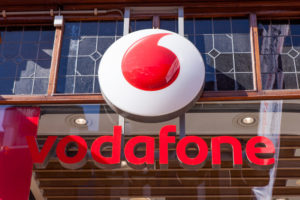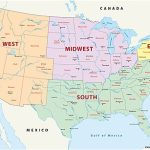
Vodafone has claimed the top spot as the UK’s most valuable brand for the fifth year in a row.
That’s according to the latest Kantar BrandZ Most Valuable UK Brands 2022 report.
Collectively, the UK’s leading 75 brands are now worth $282.9 billion, up by 1% year on year.
Vodafone has grown customer numbers across Europe, helping to secure its place at the head of the ranking. It added 149,000 new mobile contract customers in the UK this year.* Its performance was also boosted by expanding digital sales which now make up one third of its UK business. Vodafone is followed by HSBC and Shell, who have bucked the wider trend to raise their brand value by more than 10. Barclays has also entered the top 10 for the first time as it increased its brand value by 6%.
However, Kantar’s analysis shows there are some signs of stagnation for UK brands. Globally, the 100 most valuable brands grew by 23% in 2022, suggesting UK brands are falling behind in the face of challenging market conditions.
Dom Boyd, managing director of Kantar Insights UK, comments: “Last year UK brands were recovering from the impact of Covid-19, but that bounce back is now stuttering as inflation takes hold. During times of heightened uncertainty like we have now, building your brand is vital to protect and enhance customer growth. We need to see marketing teams manoeuvring to increase value and market share. This is definitely not the time for businesses to be hunkering down or pulling back from campaigns.
“Already in sectors like grocery we are tracking a swing to own label products. We know that if brands lose customers to own label, those shoppers are very difficult to win back when economic conditions improve. It’s therefore critical for brands to prove that they are worth spending money on and that invariably means innovating.”
Crucially, Dom Boyd explains, marketers should be championing the powerful role branding has to play in pricing strategy. He says: “Businesses often think that inflation means a race to the bottom, but we know that what matters to consumers when inflation bites is not lowest price, but which brand offers best value. Kantar data shows even price conscious consumers pay 14% more for brands that they think are worth it.”
The research found that one in four brands in the UK top 75 are charging a higher price than perceptions of their brands can justify, suggesting that more work is needed to make sure pricing and brand strategy are aligned. Without this, these brands risk being cut by consumers as inflation sets in.
While the retail sector has had mixed results this year, newcomer to the Kantar BrandZ ranking, Pets at Home, is an example of a business which has proved the value of its service to consumers, as Dom Boyd continues: “Pets at Home benefited from massive organic growth during Covid-19, as the pandemic fuelled a jump in pet ownership. But it hasn’t just rested on its laurels to enjoy this success. Instead, it has cleverly capitalised on the gift it was given, expanding services including on-site vets and grooming to make Pets at Home a one-stop shop for animal lovers. It has also invested in delivering a personalised, digital experience for shoppers through its VIP programme and app. This has helped it demonstrate to consumers that it’s a brand worth paying a premium for, pushing the business into the top 75 for the first time.”
The financial services sector also offers some valuable innovation lessons for marketers, with notable performances from brands who are proactively adapting to meet changing consumer needs. Revolut shot up from 72nd place to 15th this year, continuing its impressive climb as it establishes itself as a significant player in the banking market. A focus on new services including investment and crypto connections has given it almost twice the demand power amongst under 35s as the average in that age group – this measures how likely someone is to pick one brand over another and correlates with market share.
Dom Boyd continues: “Revolut has enjoyed a stellar rise in this year’s ranking although it’s important to remember market disruption isn’t just for new players. All businesses should be thinking about ways they can shake up their categories, using innovation as a first line of defence – and attack. NatWest is a fantastic case in point, which has grown brand value by 19% year-on-year. It has responded with gusto to challenger banks and renewed its focus on purpose, for example through its investment in small businesses, as well as delivering a seamless digital experience. 60% of its customers now only interact with the bank digitally.”
The Kantar BrandZ 2022 UK findings underline the demands of marketers this year, as Dom Boyd explains: “There’s a real sense that the recovery we’ve seen in the UK over the past few years is at risk. Brands have got to identify how they can stand out from the crowd and be more different in consumers’ minds if they want to avoid being cut from tightening household budgets. Difference doesn’t just underpin demand – it’s brands’ secret weapon in strengthening pricing margins. Marketers will need to be leaders in their businesses, championing what makes their brands unique, protecting that equity and making sure that the customer messaging and experience matches the price they are charging.”
Read more:
Vodafone takes title as UK’s most valuable brand






